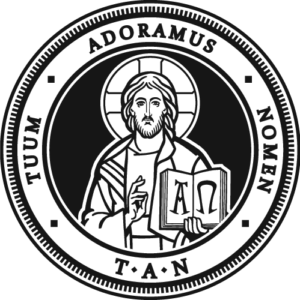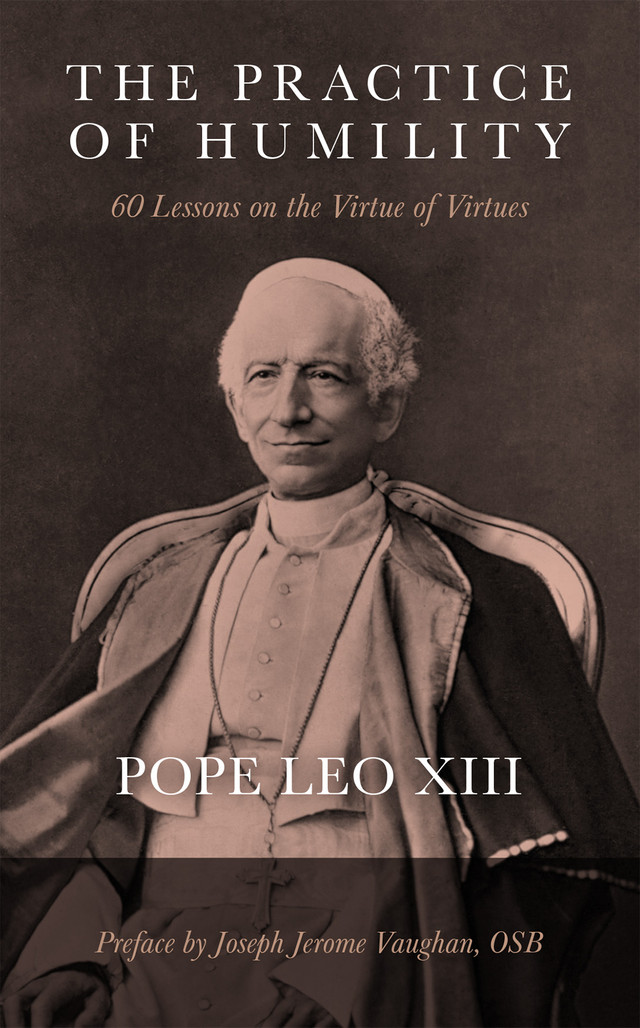In this excerpt from The Practice of Humility, Saint Augustine’s sermon on true humility and the fear of God are recalled. Here, the saint speaks on the necessity of humility for salvation and the grace Jesus grace blesses the humble heart with.
A Man After God’s Own Heart
David, the Royal Prophet and Psalmist, who, as the Scriptures testify, being a man after God’s own heart, performed His every will; this holy Prophet, I say, dearly beloved brethren, in a certain passage pointed out to us what it is that our Creator desires and loves, crying out in these words:—“Who is as the Lord our God, Who dwells on high, and looks down upon the low things in heaven and in earth.”
If, therefore, the Lord Most High, of Whose perfection and greatness there is no end, regards and welcomes humility in all His creatures—be they the most exalted or the most lowly, angels or men—how necessary, therefore, must it be that we should continually look to humility and practice it always in everything, in order thus to give pleasure to our Creator.
How great a virtue, then, true humility is, may be gathered easily from those words of our Savior, Who, to condemn the pride of the Pharisees, said:—“Everyone that exalts himself shall be humbled, and he that humbles himself shall be exalted.”
God Resists the Proud and Gives Grace to the Humble
It is only by the steps of humility that the heights of heaven can be reached, for not by means of pride do we mount to God on high, but in truth by humility, according to that which is written:—“God resists the proud, and gives grace to the humble.” And it is written in the Psalms:—“The Lord is high and looks on the low, and the high He knows afar off.” Here the high signify the proud. He looks upon the low to exalt them, and knows the high afar off, that is the proud, to cast them down. Let us learn humility in order to enable us to approach the Lord, as He Himself says in the Gospel:—“Learn of Me, because I am meek and humble of heart, and you shall find rest to your souls.” By pride the once admirable and angelic creature was cast down headlong from heaven, and by the humility of God human nature ascended thither. Beautiful, even in the sight of men, is the practice of humility, as Solomon declares:—“Where pride is, there also shall be reproach, but where humility is, there also is wisdom.” Again, another wise man said:—“The greater you are, the more humble yourself in all things, and you shall find grace before God.” And God Himself says by the mouth of His prophet:—“To whom shall I have respect but to him that is poor and little and of contrite heart, and that trembles at my words.”
Without Virtue, We are Dust Before the Wind
In one who is not humble and meek, the grace of the Holy Spirit can never dwell. God humbled Himself in order to save us. Let man blush to be proud. As profoundly as the heart abases itself in humility, so high does it rise in perfection: for he who is humble shall be exalted in glory. The first degree of humility is to hearken humbly to the words of truth, to keep them in memory, to practice them willingly. Truth, certainly, ever flees from a mind which is not humble. The less you are in your own estimation, the greater will you be in the sight of God. But the proud man, the more illustrious he appears to be to the world, the more contemptible will he be before God. He who practices all virtues, but with no humility, is like a man who carries dust before the wind. Furthermore, the Scripture cries out:—“And why do you exalt yourself, dust and ashes! ” whilst the wind of pride carries away and scatters all that you imaginest yourself to have amassed by fasts and alms.
Be well on your guard, O man, lest you make a boast of your virtue; for you shall not yourself be your own judge, but Another, before Whom, strive to keep yourself lowly of heart, in order that He may exalt you in the day of recompense. Descend, therefore, in order to ascend. Humble yourself that you may be exalted, lest having exalted yourself you should be humbled. For he who is unsightly in his own eyes, is beautiful before God. He who is displeasing to himself, is pleasing unto God. Be therefore little in your own eyes, so as to be great in the eyes of God; for the more vile you are in your own estimation, the more precious shall you be in the sight of God. In the highest honors, have the deepest humility. Honor derives its greatest glory from the virtue of humility.
But this virtue of humility no man can have without the fear of God, because the one cannot exist without the other.
The Beginning of Wisdom…
Now with regard to the effect of the fear of God, hearken to me, my brethren:—“The beginning of wisdom is the fear of the Lord.” The fear of the presence of God is a great preservative against sin. He who perfectly fears God takes great care to avoid sin. “With him who fears the Lord, it shall be well in the latter end,” and his recompense shall endure for ever. If a person be ashamed to transgress before men, how much more commendable and requisite, then, is it that he should be ashamed to commit iniquity in the sight of God, Who looks not only to the deed, but, likewise, to the heart. Those who fear God with a holy fear seek the things that are pleasing to Him. There is the fear of children and there is the fear of servants. Servants fear their masters for the dread of punishment, but children fear for the love of their father. If we be children of God, let us fear Him for the sweetness of charity, not out of the bitterness of fear. The wise man in all his actions fears God, because he knows it is impossible to hide from His presence, according to the words of the Psalmist when addressing God:—“Whither shall I go from Your spirit, or whither shall I flee from Your face;” to which is added, in another place:—“From the east even unto the west there is no hiding-place for him who flees from God.” He who fears the Lord will accept His doctrine, and he who shall be careful to keep His commandments, shall find everlasting benediction. “The soul of him that fears the Lord is blessed,” cure from the temptations of the Evil One. “Blessed is the man who is always fearful,” and to whom it is given to have ever before his eyes the fear of God. He who fears the Lord turns aside from the crooked way and directs his steps in the path of virtue. “The fear of the Lord drives out sin,” and induces virtue. The fear of God renders man careful and anxious not to sin. But where there is no fear of God there is dissoluteness of life. He who fears not God in prosperity, let him at least fear Him in adversity, and let him fly for succor to Him Who scourges and heals, for:—“Blessed is the man that fears the Lord, and who endeavors with all the desires of his heart to keep His commandments.” The fear of God drives out the fear of hell, because it makes a man avoid sin and multiply his works of justice. After this, he will arrive at that fear which, being founded upon love, is called—“holy, enduring for ever and ever.” Thus, therefore, brethren, thus let us fear God that we may love Him, for perfect charity casts out servile fear, and by this means we shall acquire abundant security and the plenitude of every good. Wherefore the Royal Prophet says:—“Fear the Lord all ye His saints, for there is no want to them that fear Him. The rich have wanted and suffered hunger, but they that seek the Lord shall not be deprived of any good.”
Fear of God and True Humility
I implore you, therefore, dearly beloved, to keep in view the fear of God; ever in your minds, to strive at all cost not to be unmindful of His precepts, and to consider seriously, that whereas he who fears God and keeps His commandments enters into life everlasting, he who despises Him and rejects His precepts, will go into everlasting torments.
Once more, I beseech you, to nourish interiorly within your hearts true humility, and by its unfeigned practice, to instill it into your neighbors, so that they also, being edified by your good example, may glorify God, and in union with you, strive to obtain an eternal reward in heaven, through the help and grace of Our Lord Jesus Christ, Who lives and reigns forever and ever.
—Amen.
ooo
This article is taken from a chapter in The Practice of Humility by Pope Leo XIII (Sermon composed by Saint Augustine) which is available from TAN Books.









